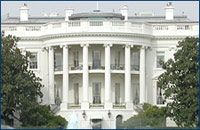Unions, As Shareholders, Use Bailout to Push Executive Compenstion Reforms
 My labor and employment law colleague, Phoebe Williams, who also teaches business associations, brings to my attention the roles unions, as shareholders, are seeking to play in the current government bailout scheme.
My labor and employment law colleague, Phoebe Williams, who also teaches business associations, brings to my attention the roles unions, as shareholders, are seeking to play in the current government bailout scheme.
According to the Risk and Governance Blog:
The Laborers’ International Union of North America and the International Brotherhood of Teamsters are filing new proposals that seek compensation reforms at companies that participate in the U.S. Treasury Department’s bailout program.
In the supporting statement for these 2009 resolutions, the labor funds argue that the pay restrictions in the Treasury’s Troubled Asset Relief Program (TARP) “fail to adequately address the serious shortcomings of many executive compensation plans.” Instead, the unions urge directors to adopt “more rigorous executive compensation reforms that we believe will significantly improve the pay-for-performance features of the Company’s plan and help restore investor confidence.”

